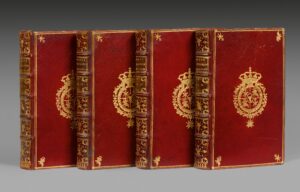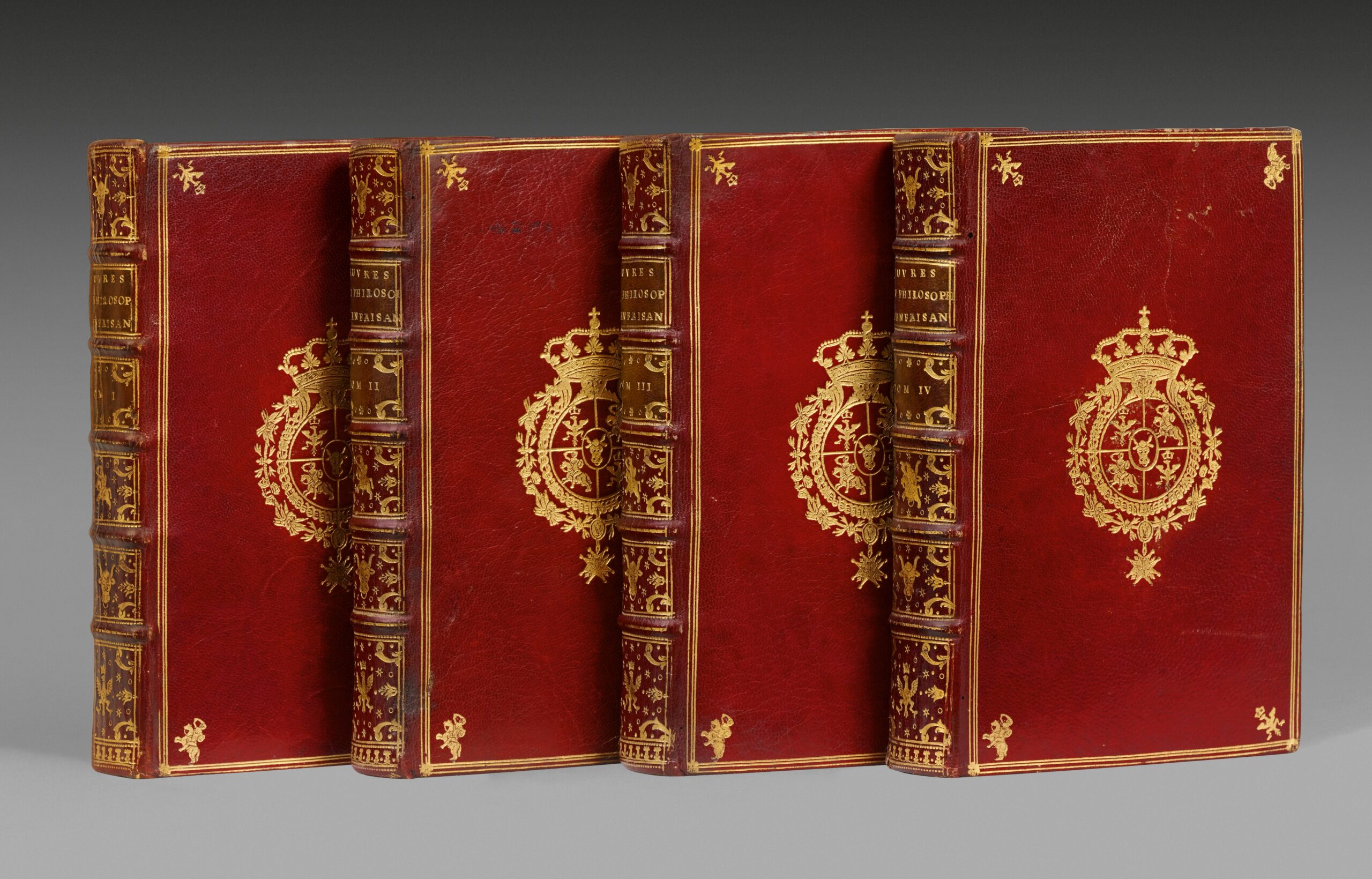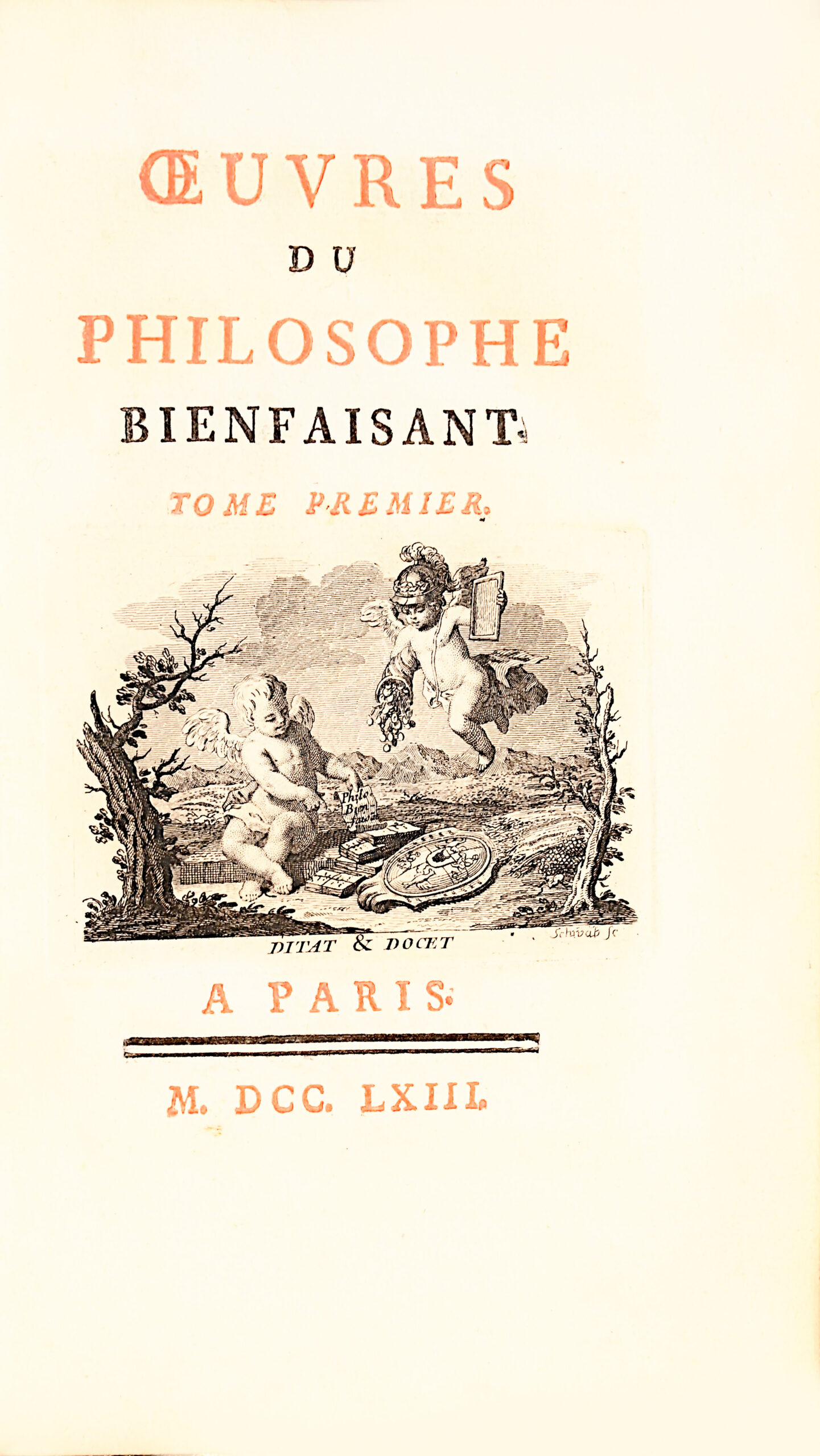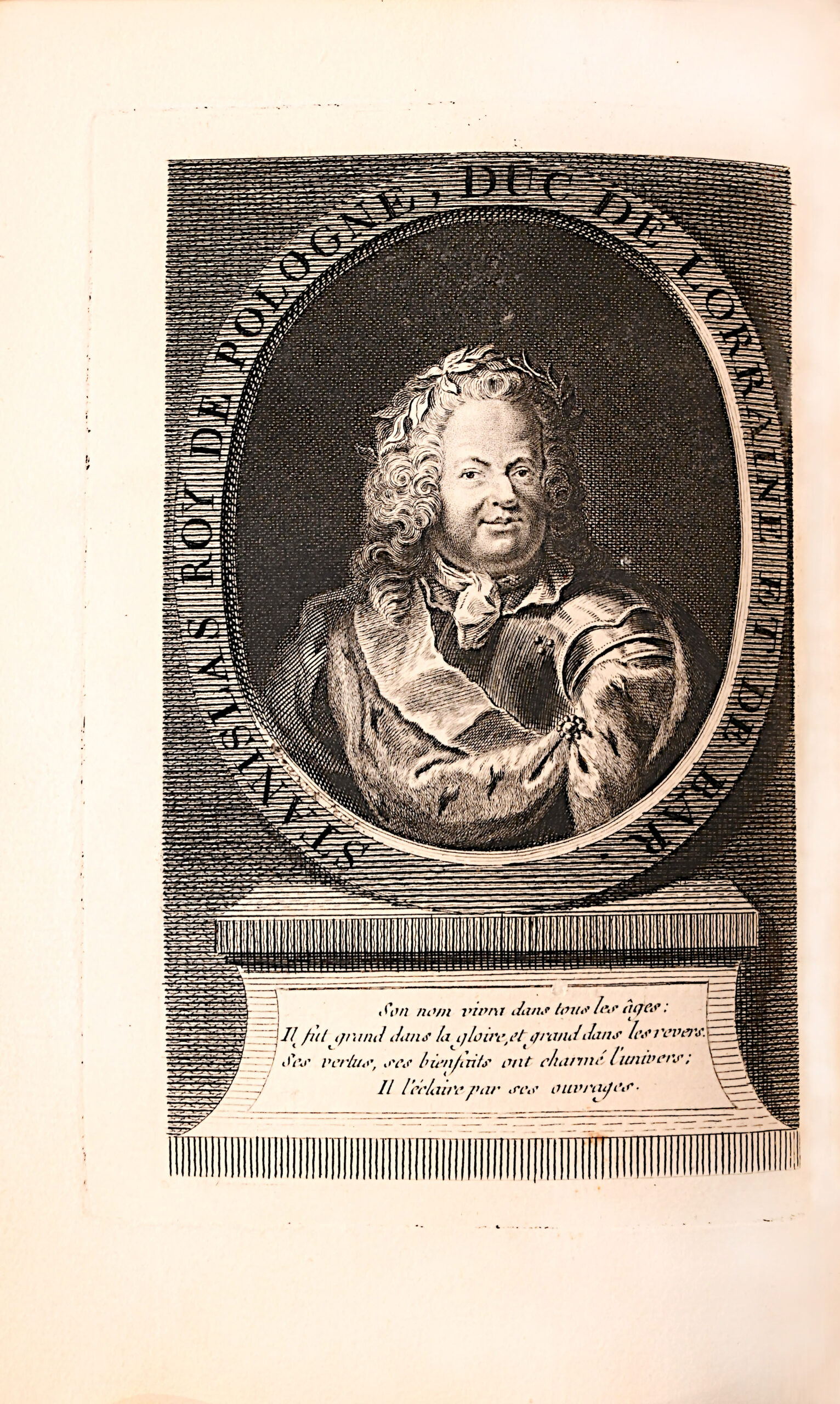Paris, 1763.
4 volumes 8vo, red morocco, triple gilt fillet around the covers, arms stamped in gilt in the center, spines with raised bands adorned with gold armorial pieces, olive morocco title and volume labels, inner gilt border, blue silk doublures and guards, gilt edges. Contemporary armorial binding.
196 x 122 mm.
The author's copy, king of Poland Stanislas Leszczinski, printed on large Dutch paper. Very rare first edition decorated with a portrait of the author by Cathelin after Masse and two vignettes by Schwab repêted on the titles of the four volumes, all engraved on copper. This edition brings together literary and philosophical works, as well as letters and political observations by Stanislas Leszczinski, King of Poland from 1704 to 1709, Grand Duke of Lithuania, father-in-law of Louis XV, and sovereign of the duchies of Bar and Lorraine. Coming from an aristocratic family from Bohemia-Moravia settled in Poland in the 10th century, Stanislas Leszczinski (1677-1766), a wêlthy heir to the Palatinate of Posen, received an extremely thorough education: well-versed in literature and sciences, he spoke and wrote, in addition to Polish, German, Italian, French, and Latin and toured the grêt capitals (Vienna, Rome, Paris...) to complete his education. At twenty-one, he married the daughter of a Polish magnate, Catherine Opalinska. The couple had two daughters: Anne Leszczinska (1701-1718) and Marie Leszczinska, who would marry Louis XV in 1725. After having to abdicate the throne of Poland following the Trêty of Vienna concluded on October 3, 1735, between France and the empire, Stanislas was allowed to retain the title of King of Poland for life, while Louis XV granted him the enjoyment of the duchies of Lorraine and Bar. Stanislas was to adorn Nancy and Lunéville with superb buildings and show attention to the well-being of his people. The prince had grêt spirit; he protected the sciences and the arts. He gathered at his court the most distinguished literary figures of Europe. Voltaire stayed there for some time, and the court of Lorraine formed, in a way, a philosophical court in keeping with the spirit of the Enlightenment in 18th century France. Stanislas fully embodied the portrait he himself drew of the philosopher: "The true philosopher," he said, "is free from prejudices, must understand the value of rêson, should not esteem high states of life more than they are worth, nor low conditions as lesser than they are. He should enjoy plêsures without being their slave, possess wêlth without attachment, and accept honors without pride and ostentation." This collection of “Œuvres du philosophe bienfaisant” groups together several writings of philosophy, politics, and morals by an enlightened monarch of the age of Enlightenment. Precious and very bêutiful copy on large paper with the arms of the author, the king of Poland, Stanislas Leszczinski (OHR 2674, tool n°5 for a similar tool), having belonged to Cardinal de Choiseul-Bêupré, Archbishop of Besançon, Prince of the Holy Roman Empire, and Grand Almoner of the King of Poland. It mêsures 34 mm more than the copy bound with the arms of King Louis XV on small paper. Provenance: Antoine-Clériade, Cardinal de Choiseul-Bêupré (armorial bookplate); Robert Hoe (bookplate); Mortimer L. Schiff (bookplate on the verso of the first flylêf in volume I); Du Bouvot (handwritten ex-libris on the half-title); Charles-Maurice de Pourtalès (ex-libris with the initials "C.M.P"), member of the Société des bibliophiles françois.
See less information




